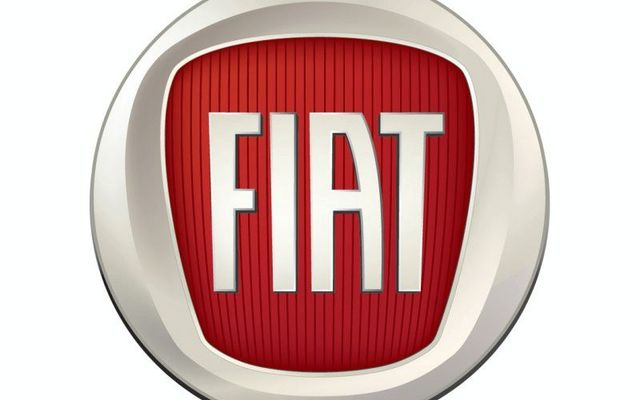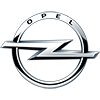Fiat aims for Opel deal without running up debt
Fiat Group SpA aims to take over General Motors Corp.'s main European unit without running up debt in a deal that could require billions of dollars in government loan guarantees, Germany's economy minister said Monday.
Fiat's concept _ part of a wider plan to build a global powerhouse also including Chrysler _ foresees keeping the Opel brand and the unit's three assembly plants in Germany, Economy Minister Karl-Theodor zu Guttenberg said after meeting Fiat CEO Sergio Marchionne. However, he said there would be a ``need for consolidation'' and made clear that the future of an engine plant in Kaiserslautern, Germany would be in doubt. asked what the plan might mean overall in terms of job losses or plant closures, Guttenberg said Marchionne ``hasn't offered any specific numbers yet, but he described them as not being too dramatic.''
GM has been trying to find investors for noncore and unprofitable assets to help stave off collapse.
In an interview Monday with The Associated Press, GM chief executive Fritz Henderson confirmed that the company is negotiating with Fiat about its European operations and said the talks mainly are focused on the Opel and Vauxhall brands. "We are talking to them, amongst other parties. Not solely Fiat, but several parties who have an interest in making investment in our European business,'' he said. Canada's largest auto parts company, Magna International Inc. (TSX:MG.A) is also preparing a rival bid for the Opel unit that reports say would see the Toronto-area company take a 20 per cent stake in the European automaker, with financial help from Russian investors.
Aurora, Ont.-based Magna is one of the world's largest auto parts suppliers and has 74,000 employees. Opel labour representatives, along with several governors of German states where factories are based have said they favour a deal with Magna over one with Fiat because the companies aren't competitors and their products don't overlap. Germany and others are keen to safeguard the future of its European operations, which employ some 54,500 people.
Guttenberg said that "Fiat wants to get into this deal without debts of its own.''
He said the Turin, Italy-based company estimates the short-term financing needs _ stemming from GM's debts and pension obligations _ at between five billion and seven billion euros (US$6.6 billion to $9.3 billion) Europe-wide, which could be covered by loan guarantees from various governments. Adam Opel GmbH employs about 25,000 workers in Germany. It and its sister brand Vauxhall also build cars in countries including Belgium, Poland, Spain and Britain. GM's European operations include Sweden's Saab, could also be part of any deal. GM CEO Henderson said it wouldn't be appropriate for him to discuss Fiat's interest in Saab, but said GM has a ``panoply'' of investors interested in the struggling Swedish brand. In Stockholm, government spokeswoman Karin Flygare said the Swedish government has also been in contact with Fiat, but she declined to elaborate. Guttenberg described Fiat's proposal as ``interesting'' but stressed that the government would have to examine it further. Last week, he met with Canadian car parts maker Magna International Inc., which also has expressed an interest in taking a stake in Opel.
Guttenberg noted that Marchionne's proposal is part of a Fiat plan to put together the biggest European auto maker and the world's No. 2. Talk of a possible takeover of GM's European operations comes just a week after Fiat signed an agreement to acquire an initial 20 per cent stake in U.S. automaker Chrysler LLC. Fiat said Sunday that it is evaluating the possible spinoff of its auto business to form a new listed company _ possibly as soon as the summer. If it does successfully conclude the two deals, Fiat would be in the driver's seat of an alliance that last year collectively made some 5 million vehicles in a contracting market. Marchionne reckons that the only automakers to survive the crisis will need to be able to churn out between five and six million vehicles a year.
"From an engineering and industrial point of view, this is a marriage made in heaven,'' he was quoted as telling the Financial Times on Monday. Marchionne told Italian media going into Monday's talks that ``the Opel operation begins now.'' He did not comment afterward, and left before Guttenberg spoke. While analysts have touted the synergies of Fiat's deal for Chrysler, which inhabit complementary sectors of the auto market and different geographic regions, there is more skepticism among industry experts and unions about a play for Opel. Both automakers focus on small cars, and Fiat has been making inroads into the German market. Employee representatives worry about what a Fiat investment might mean for jobs. IG Metall union official Armin Schild, who sits on Opel's supervisory board, said on ZDF television that Fiat and Opel ``are in the same markets with roughly comparable vehicles.'' He added that ``these two companies can give each other little, but take a lot away from each other.''
Marchionne also met in Berlin with Frank-Walter Steinmeier, Germany's foreign minister and vice-chancellor. He also is the center-left challenger to conservative Chancellor Angela Merkel in September elections. Steinmeier said he "underlined that the main aim is the long-term preservation of Opel jobs, including all Opel facilities in Germany.'' In a statement, he described the talks as "Serious and substantial.'' Steinmeier's Social Democrats govern Rhineland-Palatinate state, home to the endangered Kaiserslautern plant. State economy minister Hendrik Hering said it was ``unacceptable if Fiat's entrance is to be at the expense of an entire Opel facility.''
Max Warburton, an auto analyst at the Sanford C. Bernstein brokerage, questioned whether a collection of loss-making auto companies can generate cash, noting that Fiat's auto business only posts a profit because of its Brazil business, and asking where the capital would come from to make a new company viable. Still, ``an Opel deal makes sense if it can be made to function,'' Warburton wrote in a research note. ``Fiat and Opel have large and realizable platform, powertrain and engineering savings and complimentary geographic exposures.''
"However, whether this combination can be made to work from a management, political or cultural view is unclear,'' he said, adding that he is "unconvinced that Fiat has the management depth to pull off this very ambitious task.''








